The Brown Sisters Foundation is the continued legacy of Helen and Barbara Brown. We exist to help make God’s love visible among distressed communities by partnering with those organizations who embody God’s heart for the poor, and providing leverage to help them accomplish their work more effectively. We fund primarily Catholic organizations whose purpose is outreach and service to the poor, with a specific emphasis on youth, and with a heart to dignify and empower those they serve towards self-sufficiency. Our funding is leverage-based, to help an existing organization become more sustainable, increase its impact, broaden its services, launch new initiatives, or expand its capacity.

Barbara and Helen Brown were unique women who have left a legacy that will far outlive them and created an impact that extends beyond their reach to change and bless and better our world. They remain an example of stewardship, generosity, and possibility. learn more …

There are a few values that drive our work:

We view our investment in grantees as a partnership towards common objectives. We’re looking for “Fit” in a few primary ways:
Check out our Grant Process to consider applying. learn more …

The Brown Sisters Foundation offers matching grants, challenge grants, or grants that are intended to generate leverage for your organization during critical junctures or unique opportunities.
There are also specific types of projects we are most interested in funding. learn more …
Interested agencies should click here to fill out a very brief eligibility survey. Eligible organizations will be provided with a link to the Letter of Inquiry (LOI) form, which will be due on June 6, 2025 by 5pm via email to info@brownsisters.org.
Please contact us via email if you encounter any issues in accessing the eligibility survey or downloading the LOI.
Please note: In order to preserve the value and uniqueness of a challenge grant campaign, agencies will generally not be funded for two consecutive years, but are welcome to re-apply after a 1 year hiatus.
Unlike in previous years, we do not require a phone conversation prior to LOI submission, though you are welcome to reach out to info@brownsisters.org with specific questions. All organizations are strongly encouraged to explore our website to learn more about our funding priorities, how we invest, and our past grantees.
Those organizations whose LOIs demonstrate the strongest fit will be invited to submit a full application. These invitations are issued via email in mid-July and full applications are due on August 13, 2025. A subset of those applicants will be invited to present to our Board of Directors in mid-October, and the grant period will run from November 1, 2025 through December 31, 2026.
The Brown Sisters Foundation funds faith-based, tax-exempt organizations that work to support economically disadvantaged communities, with a specific focus on young people. All eligible proposals must be located in the St. Louis, Missouri region (USA) within a ~20 mile radius of Forest Park, and must have a challenge grant component. The Brown Sisters Foundation has one annual funding cycle, with project periods running from November 1st to December 31st of the following calendar year (14 months).
Project requests should seek to increase the organization’s ability to accomplish its work, deepen its impact, expand its capacity, become more sustainable or resilient, launch new initiatives/programs, innovate, or provide leverage in some other way. All proposals should include a challenge component.
We encourage organizations to ask for what they need to support a strategically designed leverage-based project. It is rare for the Foundation to make grants larger than $50,000. Our average grant size is $20,000.
To make sure your organization is a strong fit before applying, please review our Funding Priorities and How We Invest to create financial and missional leverage.
Each year, our grant cycle begins in early summer. We do not accept proposals outside of our annual grant process. Typically, our grant process is as follows:
The Brown Sisters Foundation uses a modified version of the Missouri Common Grant Application.
For those interested in the basic application format, you can view the generic application template and a helpful User Guide on Philanthropy Missouri’s website.
We make minor adjustments each year and send out our customized full grant application to those agencies who have been identified through our Letter of Inquiry (LOI) process. The LOI process is open to any agency who meets our funding criteria. However, we do not accept unsolicited proposals for our full application process.
We’re proud of our partners and are constantly learning from their work. Check out our grant portfolio to gain a feel for the type of partnership that makes a good fit. Click on each grantee below to learn more about that partnership. Check out more about our funding priorities and grant process.
Apply for a grant

A Seat at the Table (ASATT)
Organization
A Seat at the Table (ASATT) helps at-risk and under-resourced 18- to 25-year-olds better transition into adulthood by providing residential mentoring and community support in a Christian family environment. ASATT seeks to bring healing into the lives of participants via loving, healthy connections with caring invested adults, stepping in at a life stage when many youth-oriented supports fall away.
After providing similar services informally for many years, Bob and Chrissy Stergos founded A Seat at the Table as a nonprofit in 2018, and now live with and support four young men at the first ASATT home in a duplex in South City Shaw neighborhood. The second ASATT home, purchased in 2021, will house four young women and a host family in the Ferguson area.
Partnership #1 (2021)
As the organization enters its 4th year of nonprofit operations and seeks to expand its model into additional homes and establish a donor base to cover its ongoing programmatic costs, in addition to the catalytic gifts that enabled ASATT to purchase its first and second homes. The Brown Sisters Foundation issued a challenge grant to attract new and increased donors to support ASATT’s growth, and to support the costs of physical and mental healthcare costs for the young people being served by ASATT.
Partnership #2 (2023)
The Brown Sisters Foundation provided a challenge grant to build capacity within the organization and its staff members by hiring a part-time Program Manager/Caseworker who would conduct assessments with residents, develop individual action plans, and better track the accomplishments of their participants according to their established self-sufficiency matrix, with the intent of developing a model that can be used to replicate their immersive program in St. Louis as well as in other communities. The grant was designed to help A Seat at the Table engage their donor base and increase the amount of recurring monthly donors.
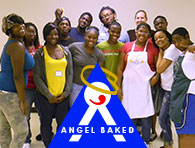
Angel Baked Cookies – North Grand Neighborhood Services
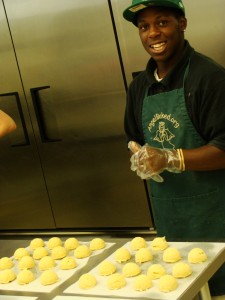
Created in 2009, Angel Baked Cookies is a social enterprise of North Grand Neighborhood Services, a nonprofit committed to the just development of its community. The program empowers area youth through job training, employment, and personal development. The program allows youth to develop job skills while they grow personally and develop lasting relationships with other participating youth and adults. Youth prepare cookies in the program’s fully-equipped kitchen and help with sales and marketing. Cookies are sold to the public.

Archdiocesan Elementary Schools
In 2012, St. Cecilia School and Academy (STC) and St. Louis Catholic Academy (SLCA) became part of a newly formed educational model called the Archdiocesan Elementary Schools (AES), owned and operated by the Archdiocese of St. Louis. Both schools primarily serve children of color from low-income families; at SLCA, 100% of students identify as African American, and at STC, 81% of students identify as Hispanic.
Each AES school’s mission is to develop vibrant, faith-filled school communities that strive continuously to provide excellent spiritual, educational, and co-curricular programs in safe and nurturing environments. As Catholic schools with a strong Catholic identity, students attend Mass weekly, start and end of each day with prayer, participate in class retreats and attend a daily religion class.
Partnership #1 (2016)
In order to strengthen educational opportunities for its students, the school decided to implement the Nativity-Miguel model. In this nationally recognized school model designed for lower-income children, students attend a longer school day and the school year is expanded to nearly year-round. Further, schools make a commitment to supporting their graduates through high school and college. The school recognized that this would increase its costs, which required that they expand their revenue sources. While the school has a lot in place – new leadership, a strong history, and a revitalized vision – they lacked a committed donor base. Brown Sisters Foundation provided a challenge grant to help the school launch a focused campaign to stimulate gifts from new donors and help it take another important step toward sustainability.
Partnership #2 (2017)
Low-income and minority individuals are significantly underrepresented in STEM fields. To better prepare their students for future STEM careers, the collaborative desired to open a Makerspace lab at each of the three schools. The lab is a space where students use design thinking, exploration, and various creative tools to develop critical thinking skills together, learn problem-solving, and encourage innovation. The Brown Sisters Foundation issued a challenge grant to attract new and increased donations to help install and launch the new labs.
Partnership #3 (2019)
In order to better serve students in grades K-5 and prepare them for middle school, the school is transitioning its current extended day aftercare program to an extended day educational program. This will take the established aftercare program and modify it so that it augments the school curriculum, focusing on academic growth and personal development. Time will be focused on reading, math, and homework through the use of certified teachers, community partners, and volunteers. In addition, the school will offer tutoring in reading and math by certified teachers in the summer to help prevent the “summer slide”. The Brown Sisters Foundation issued a challenge grant to attract new and increased donations to help make this transition.
Partnership #4 (2020)
In order to implement virtual learning successfully during the COVID pandemic, the AES schools hired and trained additional staff and secured outside funding for digital devices and WIFI hotspots for families, many of whom do not have the resources needed to secure these devices on their own. The AES schools are also pursuing professional development for staff to learn how to effectively implement virtual learning not just as a current necessity, but as another teaching tool that can be leveraged after the pandemic has subsided. The Brown Sisters Foundation issued a challenge grant to attract new and increased donations to support these pandemic-related costs.
Partnership #5 (2021)
After a year of pandemic-related learning disruptions and virtual learning, St. Cecilia’s student literacy data showed that a significant portion of students experienced literacy learning loss, particularly those students who were already struggling before the pandemic. To get students reading on grade-level, STC is investing in the capacity and skills of their teachers to provide individualized, high quality literacy instruction, and to leverage new technology to accelerate student growth. The Brown Sisters Foundation issued a challenge grant to attract new and increased donations to provide high quality professional development to STC teachers and instructional coaches.
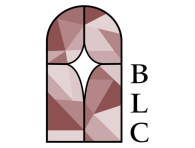
Bethlehem Lutheran Church
Organization
Bethlehem Lutheran Church is a longstanding church in North City with active community development and engagement ministries. In addition to its worshiping community, it offers 8 weekly bible study groups, a womens’ dance ministry, a music ministry, a youth choir, vacation bible school, youth groups, 3 summer camps, a youth basketball team, and a housing ministry of over 200 local housing units.
Partnership #1 (2022)
BLC has observed significant drug and gang activity among its older youth population. The church’s current youth programs primarily serve elementary-age youth, and the church is working to build out two new programs to serve older youth in an effort to connect them with the church, deter them from risky activities, and give them creative, spiritual and professional mentorship and skill development in order for them to transition successfully into adulthood. The Brown Sisters Foundation issued a challenge grant to attract new and increased donors to support the BLC’s growth, and to support the launch of these two new programs for older youth.

Breakdown St. Louis
BreakDown STL educates, equips and empowers teens to make positive life choices regarding relationships, sex, alcohol, drugs, bullying, self-harm and suicide by providing culturally relevant preventative health education. They offer a high-impact, teen-led drama presentation in area high schools that challenges and inspires teens to overcome the major issues they’re dealing with today. They’re ultimate heart to watch long-term life change occur through relationships as teens come to know the love and truth of God’s heart and plan for their lives.
BreakDown STL wanted to deepen their Long-Term impact by taking their program “off-stage” into deeper conversation and stronger relationships with area teens. They wanted to launch monthly gatherings in area high schools where they could dive deeper into these critical topics, create a more formal mentorship program and stronger peer support, better partnerships with area churches and schools, and a more concrete ability to measure their impact over the long-term. The Brown Sisters invested in first year start-up costs by providing a matching grant designed to stimulate Breakdown STL’s donor base to embrace this strategic deepening of vision.
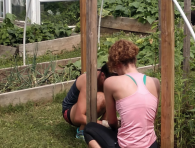
Bridge of Hope
Organization
Bridge of Hope (BoH) has served the Ville and Greater Ville neighborhoods of north St. Louis City since 2001. BoH’s work began as outreach through a church and evolved to become the only daytime shelter in the area (others provide only night-time shelter) helping homeless families in crisis out of poverty and addiction. BoH welcomes over 600 clients annually, most of whom live in deep, generational poverty. BoH provides a safe place to be during the day and offers hot meals, showers, laundry services, bike repair services, wifi and phone access, and a clothing closet. BoH also offers literacy, GED and life skills classes for its clients, and provides referrals to more specialized supports.
Partnership #1 (2021)
Bridge of Hope is refining its strategic direction to focus on increased wrap-around services that will move the needle for their clients’ social/physical/economic wellbeing and sustainability. Recognizing the significant role that mental illness often plays in the lives of people who are homeless, BoH sought out a grant to provide professional, on-site mental health services to their regular clients. The Brown Sisters Foundation issued a challenge grant to support these services and to attract new and increased donors that can support the organization’s future sustainability.
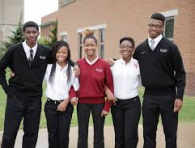
Cardinal Ritter College Preparatory High School
Cardinal Ritter College Preparatory High School is a private, Roman Catholic high school in St. Louis. From its inception in 1979, the school’s mission has been to provide an exceptional educational experience that instills in students attitudes of success and self-worth through intensive faith-based educational and leadership preparation, designed to fashion all students as productive, accountable, respectful and self-disciplined citizens in the broader community. 98% of graduates are accepted into a post-secondary institution.
Cardinal Ritter was faced with an opportunity to see sustainability rise out of tragedy. Having lost one of its core leaders, leadership identified a previously untapped donor base – alumni. Though many alumni had gone on to become successful individuals, not as many were consistent donors. There was an opportunity to ask alumni to consider giving in important ways to ensure the school’s sustainability, success, and growth. The received a challenge grant from Brown Sisters to launch a focused campaign to grow its alumni and individual donor giving.
The school’s aging lab equipment and space limited students’ exposure to STEM-related activities. The school wanted to better equip students with the scientific knowledge and problem-solving skills needed to succeed in college and pursue STEM career fields. Brown Sisters Foundation provided a challenge grant to attract new and increase donations to help purchase new science lab investigation kits and equipment needed to develop a 21st century science laboratory program at the school.
CRCP strives to deliver a college prep education and experience to all students regardless of socio-economic background. During the COVID-19 pandemic, many families experienced increased economic strain as a result of reduced income, joblessness, and illness. CRCP saw a 28% increase in need for financial assistance for families who wanted to continue to benefit from the CRCP education and community, but who couldn’t afford to pay tuition. The Brown Sisters issued a challenge grant to attract new and increased donations that would support increased financial aid for students and their families.
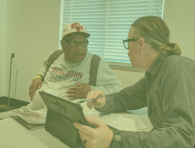
Catholic Legal Assistance Ministries
CLAM provides free legal assistance to help some of the most marginalized members of our society overcome major legal barriers that otherwise prevent them from achieving greater degrees of independence, freedom from difficult domestic abuse situations, and economic self-sufficiency.
CLAM was entering a new era of donor development, with a major focus on engaging new donors and conducing donor outreach for the first time. The Brown Sisters provided a challenge grant to encourage new donors to support this important work.

Catholic Urban Programs: Griffin Center
Catholic Urban Programs – Griffin Center is improving the lives of children and families in East Saint Louis public housing to develop the skills needed to break the cycle of generational poverty. With structured programs such as after-school academic support and recreation, summer camps, a food pantry, emergency assistance, and much more their mission is to advance the dignity of the human person through compassionate response to human needs, advocacy for justice, and the empowerment of individuals and families to reach their full potential.
The Brown Sisters invested in a matching grant to support their development department with a goal of increasing their donor base and enhancing the effectiveness of their development efforts.

Chariti Home Ministries
Organization
Chariti Home Ministries (CHM) is a founder and volunteer-led organization that serves teenage mothers in St. Clair and Madison Counties with faith-based resources and services to thrive as engaged parents and achieve their personal and family goals to break the cycle of poverty for generations to come. Their flagship program is Seeds of Promise which provides coaching and counseling for teen moms through faith-based mentoring, spiritual guidance, and connections to appropriate community resources for housing, parenting and life skills education, career and workforce development training. This program has a tremendous success rate and they serve about 75 young women each year.
Partnership #1 (2024)
Chariti Home Ministries is expanding its mentoring and life skill coaching services to support teen fathers through a new program called the Lions of Judah program. CHM has served a few teen dads over the years, but this would be an intentional program expansion to support fathers around parenting, workforce readiness, and personal growth. The Brown Sisters Foundation issued a challenge grant to support the expansion of the program for teen dads, as well as develop a concentrated effort to engage donors around their mission.

Christian Activity Center
Christian Activity Center exists in an environment that has for too long suffered. Located in East St. Louis, IL, one of the nation’s leaders in poverty and crime rates, CAC is a safe-haven for children, there to protect and serve the most vulnerable members of its community. CAC operates an after-school program designed to develop every child that walks through their doors spiritually, mentally, and physically. CAC intentionally focuses on holistic work, helping kids achieve powerful academic and personal outcomes.
Christian Activity Center has for many years functioned liked an oasis amidst devastation. Realizing that a child’s environment dramatically affects their health, they set out to buy and renovate 22 acres in East St. Louis formerly known as the killing fields. They will transform this historically tragic area into a place of community, play, exercise, nature, and beauty. The Brown Sisters issued a 10:1 challenge grant to help attract several hundred new donors and increased gifts to ensure success of this important campaign.
Realizing that a child’s environment dramatically affects their health, Christian Activity Center has been working for the past several years to buy 22 acres in East St. Louis and transform it into a place of community, healing, play, exercise, nature, and beauty. The Brown Sisters Foundation has previously supported this project through two challenge grants, which helped the agency raise $600,000 needed to purchase properties and clear the land. The agency is now poised for the final leg of this big vision. The Brown Sisters Foundation issued a final challenge grant to help the agency complete the park and attract additional in-kind and cash donations.
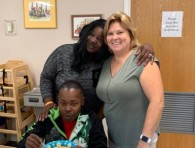
Community Hope Center
Organization
Community Hope Center seeks to display the love of Jesus Christ by providing basic needs and other services to individuals and families living in the Cottage Hills, IL area (near Alton). The goal is for those who are materially poor to experience wholeness and abundant life.
Partnership
Over the past 5 years, the agency has undergone an intentional effort to transition to a new service model which they believe will promote life transformation for their clients. This requires an intentional pivot away from a transactional model (distributing food, clothing, etc.) to one that emphasizes client-centered services, relationship building, and co-laboring with parity. Moving forward, services will include a client-choice food pantry (clients shop for their own food) and case management to help address needs and work toward long-term solutions. Clients and community members will also have an opportunity to participate in cohorts designed to develop relationships and help people support each other in moving out of poverty. The agency is forming strategic partnerships with other agencies to provide additional wrap-around assistance. The agency knows that educating donors about and engaging them in this new service model will be key. The Brown Sisters Foundation issued a challenge grant to attract new and increased donations to support this new model.

Compass Educational Programs
Compass offers faith-based preschool as well as before-and after-school care on charter school campuses. Compass’ goal is to provide each child with high-quality early childhood education in a loving Christian environment. Their programs strive to be an extension of the family setting, designed to give parents a support system, educational choice, and peace of mind.
Compass, in partnership with Eagle Prep Charter schools, were looking to open two new locations in coming years. To facilitate this expansion, the Brown Sisters offered a challenge grant to engage new donors in making this expansion possible.
Compass, in partnership with Eagle College Preparatory Charter schools, was looking to open its fourth St. Louis City location in the 2017-2018 school year. To facilitate this expansion, the Brown Sisters Foundation offered a challenge grant to engage new donors in making this expansion possible.
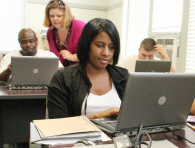
Connections to Success
Connections to Success provides hope, resources, and a plan to help inspire low-income individuals to realize their dreams and achieve economic independence. They work with women and men from various backgrounds including those facing barriers to employment such as poverty, domestic violence, and criminal history. Their goal is to comprehensively address barriers to employment, and walk with individuals for the long-term as they change the future for themselves and their children.
Connections to Success was looking to refine and expand their traveling clothing boutique, with a dual goal of being better able to offer interview appropriate clothing to individuals off-site, and bring designer fashion clothes to “parties with a purpose” as a social enterprise to support the organization. The Brown Sisters issued a challenge grant, which was leveraged by Connections to Success to raise 2:1 investment from new donors or increased gifts from existing donors, enabling them to launch a new truck in both the Kansas City and St. Louis markets. Ultimately, they’re better able to advance their outcomes, while becoming more sustainable.
The agency approached Brown Sisters Foundation to help launch a new social enterprise – The Success Accelerator. The agency had identified a significant gap among corporations – difficulty in training and retraining entry level workers. This fit nicely into the agency’s core competency – which was built around helping people exit poverty and prepare for success in the workforce. CTS saw an opportunity to generate earned revenue while furthering their mission. They adjusted their existing curriculum to teach supervisors and corporations how to engage, train, equip, and understand entry level workers, while helping properly acclimate entry level workers to their place of employment. The Foundation provided seed funding to launch this new social enterprise and a challenge grant to raise additional funding from new or increased donors.

Cornerstone Corporation
Organization
Cornerstone Corporation is a Christian Community Development Corporation that provides an equitable opportunity for quality, affordable housing to those who would not otherwise have it; empowers constituents to grow their capacity to achieve their life goals with dignity; and collaborates with others for community-driven development of the West End neighborhood.
In addition to serving as a housing ministry, Cornerstone is the lead planning partner to develop a community development plan, engaging over 100 residents and stakeholders over the course of 30 public meetings, to co-author a neighborhood plan to define use and possibilities of the neighborhood for the next 20 years.
Partnership #1 (2021)
Cornerstone recently completed a 10-year impact plan, which includes implementing expanded services focused on financial mobility and generational sustainability. The Brown Sisters Foundation issued a challenge grant to attract new and increased donors to support the intentional design and implementation of these new capacity-building programs for their 70+ residents, ultimately seeking to support residents in rising out of poverty within a single generation.
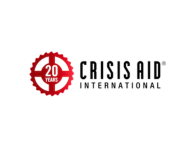
Crisis Aid International
For nearly two decades, Crisis Aid International has worked in 11 countries to fight sex trafficking and exploitation. Crisis Aid’s work has grown to include multiple long-term holistic community development programs in both the U.S. and East Africa.
In 2012, Crisis Aid opened its U.S. Refuge safe home to house and provide faith-based counseling and mentorship to trafficked women and girls in St. Louis and began collaborating closely with the St. Louis County Police Department’s Special Investigations Unit. Additionally, Crisis Aid’s Wings of Love and Care ministers to families in St. Louis, Missouri providing food, clothing, hygiene items, and back-to-school supplies.
Crisis Aid had identified that a barrier to retaining girls in their home was the lack of a “home-like” environment. The Brown Sisters issued a challenge grant to new donors to raise the funds to rehabilitate their residential care facilities. They will create a more warm and home-like atmosphere while creating space for therapeutic programs that will increase participant length of stay.
When the agency opened the Refuge Home, they did not expect the growing demand for services. Rather than continue to turn women and girls away, the agency approached Brown Sisters Foundation to help expand the home from 8 to 22 beds. The Foundation provided a challenge grant to raise funding from new and existing donors to cover increased expenses and ensure sustainability.
In 2018, Crisis Aid deepened its partnership with the St. Louis County Police Department by expanding Crisis Aid’s services to include the provision of advocacy, crisis intervention, counseling, education, safety planning, and connections to community resources for trafficking victims and internet/electronics-based crimes against children and their families. These expanded services, called CAPP (Collaborative Advocacy Police Program) are made possible through Crisis Aid staff embedded within the specialized police units that investigate internet/electronics-based crimes against children and sex trafficking.
As young people spend more time online in general due to increased popularity of online gaming, social media, screen time and smartphone usage, Crisis Aid saw increasing requests for victim assistance. In response to this increasing need, CAPP is expanding its program to collaborate with the St. Charles County Police Department’s Cyber Crimes Unit. The Brown Sisters Foundation issued a challenge grant to attract new and increased donations to support this expansion, as well as related services.
Children’s Anti-exploitation Partnership (CAP) is a new collaborative initiative that Crisis Aid International has engaged in that focuses on reaching children at risk for sex trafficking or other forms of child sexual abuse. CAP provides advocacy, resources, and support to children and families identified in internet/electronics-related crimes against children and human trafficking investigations, as well as tools like Internet Safety Education (ISE) programs for parents of children engaged in high-risk sexual activities online to help prevent trafficking or other forms of sexual abuse. The Brown Sisters Foundation issued a challenge grant to support staffing of the CAP program.
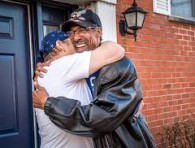
Criminal Justice Ministry
Organization
The agency provides housing and intensive wrap-around services to those impacted by incarceration. 137 men and women were served last year and an additional 1,800 were assisted with basic needs. The agency co-signs a 12-month lease with a client, slowly increasing the amount the client pays as they get back on their feet. The agency was created by Society of St. Vincent dePaul and operated as a program until it spun off as a stand-alone agency in 2012. It still maintains a close relationship with Catholic churches and volunteers.
Partnership
Affordable housing is at a crisis point in the St. Louis region, especially if you have a criminal history. Up to now, the agency has partnered with area landlords to offer housing, but has seen rent increase significantly in recent years. Finding landlords willing to rent to ex-offenders, particularly women with children, and who provide safe, secure housing is increasingly difficult. For this reason, the agency has begun purchasing and managing rental units throughout the City. The Brown Sisters Foundation issued a challenge grant to attract new and increased donations to help establish an Operating Reserve Fund to provide repairs/maintenance of these units and ensure long-term sustainability.
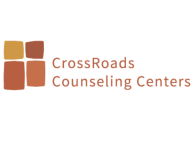
CrossRoads Counseling
Organization
CrossRoads Christian Counseling Centers was formed in 1998 when Central Presbyterian Church asked three local counselors to take over Central Christian Counseling Services. In the last 25 years, CrossRoads has grown into a non-profit with 30 counselors meeting the needs of a diverse client base with satellite offices in the St. Louis region, Austin, TX, and virtual counseling with missionaries around the world.
Partnership #1 (2022)
Alongside their church partners in University City and the low-income West End neighborhood, CrossRoads launched an initiative in 2016 called Families Flourishing, which provides faith-informed and evidence-based counseling to community residents in space provided by a local church and conducts parent support groups at a local elementary school. Crossroads also provides free mental health education to churches and community organizations designed to reduce stigma and equip these organizations to foster mental wellness. The Brown Sisters Foundation issued a challenge grant to attract new and increased donors to support the organization’s growth, and to support Crossroads’ efforts to replicate its Families Flourishing initiative in Ferguson, MO, working in partnership with local churches and nonprofit organizations.
Partnership #2 (2024)
In 2022, with the assistance of the Brown Sisters Foundation, CrossRoads expanded its Families Flourishing Initiative into North St. Louis City and County. They have sustained that initiative, serving 235 people in Ferguson last year. To provide more specialized and deeper levels of care to meet the needs of clients in North City/County, CrossRoads has the opportunity to expand available services by growing a team of culturally diverse counseling providers, adding therapeutic group options and bringing additional services like microcurrent neurofeedback, integrative nutrition and cooking classes, holistic psychiatry, and spiritual direction all under one roof at a central location in Ferguson. These types of therapies are typically not affordable or accessible for low and middle-income populations, but there is strong evidence that the combination of these treatment approaches is more effective than therapy alone. The Brown Sisters Foundation provided a challenge grant to support the growth of this program, as well as engage new and existing donors around the program.

De La Salle Middle School
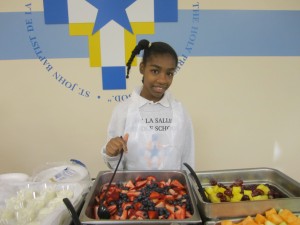 Organization
OrganizationDe La Salle Middle School is dedicated to transforming children and their community through innovative education. De La Salle is a community-based, co-ed, middle school applying the Nativity Miguel model to help students from low-income communities catch up to grade level, remediate key learning gaps, acquire key social and life skills, and engage in other enrichment opportunities. They fundraise to send their students to high-performing area high schools and provide ongoing support to help them succeed in high school and attain continuing education. The average student from their community has a 45% chance of graduating from public high school. Students attending De La Salle show a 96% high school graduation rate, and early studies show an over 60% graduation rate from continuing education.
In preparation for strategic growth, De La Salle wanted to develop more consistent, ongoing giving. The Brown Sisters invested in the launch of a monthly auto-gift program. We helped fund the development of this infrastructure, and then provided a matching grant to help encourage donors to commit to this initiative. Primary targets were new and lapsed donors, as well as board members to increase board giving and engagement. Commitments to the monthly auto-gift program counted towards the match (For example, a $100/mo commitment = $1200 toward the match). This generated a significant increase in new, monthly giving – giving which will continue annually as long as excellent donor care is maintained. Early results show these giving levels to be largely maintained.
De La Salle wanted to start a Business Renaissance class to help students learn the business of the school, engage in fundraising, and develop their own small business to learn the art of money management and entrepreneurship. Each student was given seed money to start a small business of their choice. They had to determine the plausibility of partnerships, as well as pricing, margin, etc, and sold their wares at an annual school event. The Brown Sisters provided seed money for this initiative.
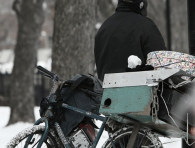
Depaul USA
Founded in 2009, Depaul USA, an outreach of the Jesuits, takes an innovative approach to ending homelessness and ensuring that everyone has a place to call home and a stake in the community. They have developed a deep array of core competencies across homeless services, built on best practices and experience. supports people experiencing homelessness to ensure that everyone has a place to call home and a stake in the community. The organization is one of six subsidiaries of Depaul International, all of which operate on the values and wisdom of St. Vincent de Paul.
After conducting a comprehensive needs assessment of services for the people who are homeless in the St. Louis area, Depaul identified two critical gaps its was qualified to fill: permanent supportive housing for homeless individuals, and a home for homeless youth. The agency approached Brown Sisters Foundation for a 2:1 challenge grant to attract new and increased donations to help purchase a facility and launch permanent supporting housing services for homeless youth in St. Louis City. Once the challenge is met, the Foundation’s grant will become capital needed to secure the property, and money secured from new donors will provide the ongoing operating capital needed to sustain the program. When finished, St. Lazare House will offer 15 fully-furnished one-bedroom apartments for homeless young people, aged 18-24. Residents will receive wrap-around physical and behavioral health services, participate in education and training, and gain the life skills necessary to become independent and productive community members.
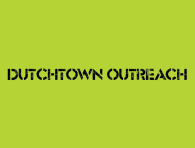
Dutchtown Outreach
Organization
Dutchtown Outreach seeks to bring love and reconciliation, identity and dignity to the Dutchtown community by living out and sharing the restoring love of Jesus. They engage in relationship-based initiatives like youth and family mentorship, youth groups, and recruiting and training volunteers from churches to help with their work. Their programs predominantly engage the Black community, with a specific focus on youth. Creating a safe space for youth in the Dutchtown area has come into focus due to recent tragedies and deaths involving young people in this community.
Partnership #1 (2023)
Dutchtown Outreach has experienced steady growth the past few years, and recently purchased its first building to be a home base and hub for its programs. The house needs significant renovation, but is needed to increase capacity for their organization to create a safe place for youth by hosting teen nights, community dinners, and youth and parent grief groups, as well as continue to build partnerships with other local organizations to serve their neighbors well. The Brown Sisters Foundation issued a challenge grant to support the transition to this new building, as well as develop a concentrated effort to engage donors around their mission.
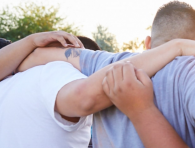
Elevate USA
Founded in Colorado in 1982, Elevate USA’s mission is to transform cities by building long-term, life-changing relationships with urban youth. Elevate’s faith-based programs use a unique, relationship-based approach where full-time staff who represent the community they serve, act as teachers, mentors and life coaches, build relationships with students, and are available in their lives 24/7/365. The agency begins working with youth in second grade and continues through graduation. The average graduation rate in urban schools across the United States hovers around the 58% mark. For students who participate in Elevate programs for three years or more, the graduation rate improves to 90%. 86% of these graduates go on to college, technical training or the military.
The agency was invited to bring their successful model to the St. Louis region, specifically in the Ferguson-Florissant School District. Over the next two years, the agency’s primary focus will be developing a local donor base. The Brown Sisters provided a challenge grant, with a two-fold purpose: 1) to demonstrate the support and belief of a local funder, and 2) to provide an incentive to donors by providing a 20:1 challenge grant. The grant will be a critical part of helping new advisory board members in a new market be successful in raising the needed funds to launch this important program.

Faith Ascent Ministries
Faith Ascent Ministries seeks to create long-term change by reducing the number of Christian teens that abandon their faith in college. By focusing on apologetics and critical thinking, their mission is to equip youth pastors with the tools needed to help their teens to see and believe that the love and hope found in God is more than just wishful thinking or an emotional crutch.
Historically, Faith Ascent had delivered much of its programming through a summer camp experience and speaking engagements and events at local churches. Realizing that much of the impact of their work comes from the content of their message, they launched an initiative to produce a video curriculum that will dramatically increase the number of youth they’re able to serve without significantly increasing their cost. The Brown Sisters issued a challenge grant to invite new donors to help expand the impact of this work.

Faith Lutheran Church
Founded in 1945, Faith Lutheran Church now has two campuses (one in Oakville and one in Columbia, Illinois) with total weekly worship attendance at approximately 1,100 through both in-person and live-streamed services. The church also operates a preschool that serves the broader community and as well as an annual Vacation Bible School. The vast majority of the work that Faith Lutheran does in the community is done through its approximately 50 Life Groups (a.k.a. small groups) who are each encouraged to adopt a need in the St. Louis community and partner with local organizations to care for people in the community.
Partnership #1 (2020)
As schools shifted to online learning in response to the COVID-19 pandemic, many children experienced interruptions to mental health supports that they received in their school settings. Faith Lutheran sought to respond to this unmet need by expanding its ministry provide free children’s mental health services. Faith Lutheran reached out to the Brown Sisters Foundation for support in hiring a licensed social worker to work with children, as well as to support family wellness through quarterly educational events for families on a variety of topics (e.g., child-development, grief, healthy coping skills). The Brown Sisters Foundation provided a challenge grant to attract new and increased donations in support of this new role for the church in its community.
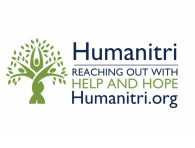
Humanitri
Organization
Humanitri was formed in 2006 through the merger of three long standing Lutheran ministries. In 2018, Humanitri launched a new program model called the Transformational Housing Program that focuses on both preventing homelessness, and reversing it for families who are already homeless. Humanitri uses a wraparound approach that provides up to 24-months of temporary housing and works closely with families to develop important life skills designed to help them make sustainable changes in their lives and strengthen their family unit.
Partnership #1 (2022)
While the supportive housing program primarily works with parents on skill-building, Humanitri simultaneously works with the children through their Together Achieving Goals (TAG), providing opportunities for family units to work together to solve problems, access resources, and sharpen skills. The Family Support Specialist (social worker) and Child & Youth Advocate (occupational therapist), work together to complete a family assessment and define programmatic goals for each individual family member. Through a combination of online curriculum and in-person home visits, the parents and children work on the management of 4 key domains (self, home, stress, and financial) in developmentally appropriate and mutually-reinforcing ways that will ultimately help the family unit transition into stable housing and employment. The Brown Sisters Foundation issued a challenge grant to attract new and increased donors to support the Humanitri’s growth, and to support the TAG program children’s program.

Immigrant Home English Learning Program (IHELP)
Organization
The Immigrant Home English Program (IHELP) was founded as the Immigrant & Refugee Women’s Program (IRWP) in 1995 by Sr. Elise Silvestri under the SSND Ministry Corporation. In 2006, IRWP became a 501(c)(3) non-profit and expanded in the following years, changing its name to the Immigrant Home English Learning Program in 2020. IHELP provides free, 1:1 home-based English language and basic living skills to adult immigrants and refugees to increase independence and decrease isolation.
Partnership #1 (2022)
IHELP is currently in the process of merging with the English Tutoring Project (ETP), which has provided free, school-based English language instruction to children to support their academic success at Catholic schools. IHELP is incorporating ETP into their organization and shifting the youth program to be home-based and provided by volunteers. The Brown Sisters Foundation issued a challenge grant to attract new and increased donors to support the organization’s growth, and to support free, one-on-one, individualized English instruction for school-aged immigrant and refugee children. The grant will also support the successful transition of ETP’s program model to adaptation to IHELP’s volunteerism model and expand the reach of the program.

Jacob’s Ladder Ministries
Organization
Jacob’s Ladder Ministries (JLM) uses faith-based support and comprehensive programs to empower incarcerated individuals, the formerly incarcerated, and their families by reconnecting them with their faith, family, and community. JLM delivers comprehensive programming within local jails and prisons, offering faith-based substance recovery classes, life coaching, community re-entry courses, mentoring, worship services, Bible studies, and support groups for families of incarcerated individuals. Additionally, their Sew Hope Community Sewing Room in Florissant, MO, serves as a creative community space where individuals can explore their God-given creativity through sewing, quilting, and crafting.
Partnership #1 (2024)
Jacob’s Ladder Ministries is launching the Sew Hope Entrepreneurship Program, a new initiative designed to provide valuable job training and skills development for incarcerated and formerly incarcerated individuals. JLM noticed gaps in needs with repeat offenders: many of them struggled to find work and gain financial stability, eventually landing them back in prison. The program will offer an extensive sewing training course, teaching participants to operate both industrial and domestic sewing machines, laying a strong foundation for various sewing-related careers to help prevent recidivism, provide job training and life skills, offer mentoring, and equip participants with entrepreneurial skills for potential self-employment through sewing. The Brown Sisters Foundation issued a challenge grant to support this innovative new program, as well as help JLM convert in-kind donors to monetary givers in support of this program.

Kingdom House
Organization Overview
Kingdom House seeks transformation with those they serve – inside and out. Through a variety of holistic services and a two-generational approach, the agency seeks to end generational poverty by promoting empowerment and growth in individuals & families. In 2017, the agency served 2,400+ people.
Project Overview
The agency approached Brown Sisters Foundation to expand its nationally-recognized Freedom Schools to two additional sites in the summer 2019, thereby expanding total capacity for the program to 140 youth. During the 6-week camp, the program has demonstrated an impact in reducing the learning loss that kids ages K-12, especially low-income children, face during the summer. The dynamic curriculum aligns with the Common Core Standards, focusing on literacy, science, technology, engineering and math activities. The Foundation provided a challenge grant to raise funding for this expansion from new and existing donors.
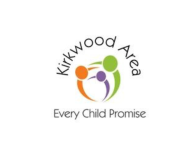
Kirkwood Area Every Child Promise
Organization
Kirkwood Area Every Child Promise (KaEChP) seeks to ensure that children and families are prepared for success as they enter kindergarten. Formed in 2017 as a collaboration of churches, individuals, nonprofits, schools, and preschools, Webster Groves Christian Church plays a leadership role in the collaborative, providing free use of its facilities plus financial & volunteer support. KaEChP offers preschool tuition scholarships to families who qualify for the Free and Reduced Lunch program, connects families to the Parents as Teachers program, and has access to a community closet with free basic needs supplies.
Partnership #1 (2018)
The agency approached Brown Sisters Foundation for a challenge grant to attract new and increased donations to carry out its mission. Funds raised will allow the agency to expand scholarship assistance, professional develop opportunities for preschools, establish outcome measures and evaluation processes, and position the agency for long-term sustainability.
Partnership #2 (2022)
As parents returned to work folk and navigated increased financial strain following the pandemic, KaEChP seeks to respond to increased need for preK scholarships and re-establish pre-covid relationships with preschools, resident families, community partners and donors, all by increase its staff capacity to pre-pandemic levels. The Brown Sisters Foundation issued a challenge grant to attract new and increased donors to support the organization’s growth, and to support staffing costs.

LOVEtheLOU
LOVEtheLOU was formed in 2009 out of the very simple idea of bringing people together with the common desire to meet urban needs and has partnered with local churches and nonprofits to beautify and unify St. Louis City, particularly the area of North City that centers on the Enright Community Gardens.
Today, LOVEtheLOU hosts three key programs:
LOVEtheLOU is working to expand its mentoring program and increase access to youth employment through social enterprise. The Brown Sisters issued a challenge grant to engage new donors to help expand the mentoring program, with a simultaneous investment in capacity building to increase the effectiveness of their development team.
Through a new partnership with St. Louis area congregations, the agency is launching a new program to raise up and support North St. Louis City community members for Gospel-centered neighborhood restoration. The first project is rehabbing a house in which a neighborhood leader will live, be equipped, and ultimately become a beacon of hope for neighbors through developing community relationships, establishing neighborhood watch programs, and opening their homes to neighbors for fellowship. If successful, the model will be replicated on additional blocks. Brown Sisters Foundation provided a challenge grant to raise funding from new and existing donors to position this new project for success.
To-date, LOVEtheLOU has operated without office or programming space and is now seeking to acquire and renovate a building in North St. Louis City. The building will become an Enrichment Center that will both stabilize and invest in the immediate community, as well as meet LOVEtheLOU’s organizational needs. LOVEtheLOU plans to house all of its current programs at the Enrichment Center and hopes to grow into the space over the next 10 years with expanded programming offerings to include emergency housing, a gymnasium, and other community resources. The Brown Sisters Foundation provided a challenge grant to attract new and increased donations to LOVEtheLOU’s capital campaign as it invests even more deeply in its community.
LOVEtheLOU acquired a building in North St. Louis City to serve as its Enrichment Center that will both stabilize and invest in the immediate community, as well as meet LOVEtheLOU’s organizational needs. The Brown Sisters Foundation issued a challenge grant to support LOVEtheLOU’s capital campaign as it continues to renovate this building, plant roots and serve the residents of North St. Louis City.
LOVEtheLOU is launching a Capital Campaign that will create an Enrichment Jobs Center as the next part of their Resource Hub, serving as part of a solution for career pathways for North St. Louis City neighbors. The 3-story Enrichment Center will feature grocery and banking services on the ground floor, as well as several entrepreneurial brick and mortar businesses. The second floor will feature 10 enrichment rooms that will make up a new, revamped Skills Center, which include woodworking, small engine, small business, art, recording studio, makerspace, large kitchen, and indoor gardening. The third floor will house staff and key collaborators as a “work and live” model for their work. LOVEtheLOU will leverage partnerships with other community organizations, so they aren’t duplicating services, but providing a central space for everyone to come together under one roof to provide comprehensive services.

Loyola Academy
Loyola Academy serves adolescent boys of all religious, racial, and ethnic backgrounds. They are committed to breaking the cycle of poverty by fostering comprehensive development as a foundation for college readiness. They utilize the Nativity-Miguel model for middle school girls from low-income families. They help their students catch up and perform at grade level, remediate key learning and performance gaps, and engage in enrichment activities like healthy eating, exercise, and extracurricular opportunities. They fundraise to send their students to high-performing area high schools and provide ongoing support to help them succeed in high school and attain continuing education.
Loyola had been working on developing its endowment fund and needed a strong catalyst for challenging its donor base to invest in this long-term strategy. Loyola recognized how building a strong endowment can help an organization become sustainable for the long-haul, but how often daily operating expenses tend to be more appealing to donors as a more immediate form of investment. The Brown Sisters invested in a challenge grant, which Loyola intends to match at a 10:1 factor.
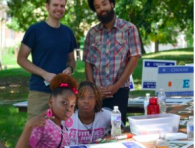
Lutheran Development Group
Organization Overview
Lutheran Development Group began in 2013 as an idea to connect the resources of Lutheran congregations and organizations with the needs of their neighborhoods. The agency works to rebuild urban communities through real estate development and community initiatives designed to build not only physical structures, but relationships with and in communities based on mutual respect, mercy, compassion, & dignity. The agency partners with City churches who provide a variety of health/human service ministries for and relationships with residents.
Partnership #1 (2018)
Previously, the agency had to partner with other developers to secure financing for its projects. The Brown Sisters Foundation awarded a challenge grant to help the LDG raise funding from new and existing donors to secure the capital needed to become a lead developer, thereby improving access to financing and providing greater financial stability and liquidity. The grant also allowed the agency to immediately expand its work to one additional neighborhood.
Partnership #2 (2021)
In order to provide disadvantaged young people with job training in a skilled trade that is currently facing labor shortages, LDG is seeking to create a year-round, full-time paid carpentry apprenticeship program for young people ages 18‐25 years old living in or near the low-income Dutchtown neighborhood. LDG plans to hire 3 apprentices in the first year of the program and will support participants in securing employment in the carpentry field (or other construction-related position) following the program. The Brown Sisters Foundation issued a challenge grant to support this new program and to attract new and increased donors to LDG.

Lutheran North Middle and High School
Organization
Lutheran North Middle and High School is a private Christian education serving grades 6-12 located in North County. As there are not many co-educational Christian schools in the north county/city area, Lutheran North prioritizes maintaining a long-term presence in the community. Due to socio-economic challenges in some of the communities that their students come from, they seek to make the tuition financially accessible to families, with most families receiving an average of $5,000 in financial aid. 90 percent of the student body is black, and most reside in the North County and North City neighborhoods.
Partnership #1 (2024)
Lutheran North identified a need to build capacity for greater spiritual formation among their student body, as well as develop relationships with local churches. They will increase offerings in their daily chapel services, support additional pastoral and spiritual staff on campus, create a stronger church network around the school, and develop stronger Christian student leaders through a pastoral internship program. The Brown Sisters Foundation issued a challenge grant to support the spiritual development initiative and help the school garner additional fundraising support from the community to sustain their programming in North County/City.
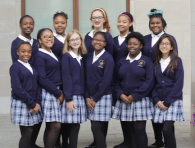
Marian Middle School
Founded in 1999, Marian Middle School is the only all-girls Catholic middle school in the St. Louis area serving urban adolescent youth in a faith-based environment. The school utilizes the nationally-recognized Nativity-Miguel model that offers a longer school day and school year, as well as ongoing support for graduates through high school and college.
Marian has a strong board and development team. Their goal was to strategically increase the average giving level of their donors and strengthen their commitment and engagement in the school. The Brown Sisters provided a challenge grant their development team. Marian used this challenge to launch 1 on 1 conversations with its donor family, asking them to consider increasing their current level of giving to help them meet the challenge. Only the increased giving amount counted towards the match. They were able to raise over 1.5 times the grant investment in increased giving. Due to a strong donor care plan and some creative giving opportunities that were launched in tandem with the grant, they believe these increased giving levels will be sustainable.
Low-income and minority individuals, which comprises most of Marian’s student body, are significantly underrepresented in STEM fields. In order to provide students with the best, most advanced education possible, the school approached Brown Sisters Foundation for help in creating a STEM learning lab and workshop, thereby increasing STEM opportunities and outcomes for students. The STEM lab will enable classes that are more effective and efficient. With access to advanced technology and innovative tools, students will have an opportunity to build and create exciting projects and explore potential career paths. The Foundation provided a challenge grant to help the school attract additional donors to support the development and ongoing sustainability of this new space.
In order to realize key areas of growth in the school’s 10-year Impact Statement, the Marian is strategically growing its fundraising capacity to meet expanded budget needs over the next 5 years. The Brown Sisters Foundation issued a challenge grant to attract new and increased donations to support the school’s Annual Fund Development Mentoring Initiative. Through this initiative, Let’s Build Hope will provide coaching to Marian’s development team to create an even more effective fund development strategy, and build and embed an organizational understanding of successful fund development processes.
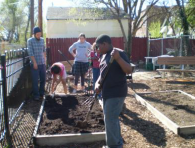
Midtown Catholic – City Greens Market
Catholic Charities Community Services – Midtown Center seeks to assist individuals, families and groups in their struggle to survive economic, social, health and emotional crises and to support growth toward self-sufficiency. Several years ago they launched City Greens, a market aimed at providing low-cost, fresh and healthy produce, meat, and other food goods to help mitigate the lack of access to healthy food in their neighborhood. The market is partially funded through a membership model where members across income streams are able to participate in access to low cost, healthy food, and contribute to food justice and improved access.
City Greens has shown a clear trajectory of success and trending growth. They wanted to open a devoted storefront location to increase their hours, offer more consistency for shoppers, increase product selection, and increase services such as cooking classes. The Brown Sisters foundation offered a matching grant to challenge City Greens donor base to invest in this important social entrepreneurship initiative.

Mission: St. Louis
Formed out of the Journey Church in 2006, Mission: St. Louis exists to restore the city of St. Louis by empowering people to transform their lives, families, and neighborhoods. Their services fall into 3 main buckets and are driven by a commitment to developing relationships, empowering others, and creating opportunity:
Mission: St. Louis launched a thrift store to complement their existing model. The thrift store was designed to accomplish three things. First, it provides access to low-cost goods for the impoverished residents of their community (a need discovered through a community needs assessment). Next, it provides workplace experience for students in their job training program, helping ensure graduates are successfully prepared for employment. Finally, the store generates ongoing revenue for their organization, providing for a more sustainable future. To ensure success in carrying out the launch of a store, they identified a consultant who has a proven track record of launching successful stores in similar locations. The Brown Sisters Foundation invested in a matching grant to raise the seed capital needed to launch this thrift store.
The agency sought funding to help launch an innovative co-working space and services collaboration, called EACH1, to support and equip people (particularly those living in north St. Louis city) to improve their long-term health and economic mobility by providing integrated services in one location. The goals are to increase access to care, improve daily functioning, increase employment, and promote long-term self-sufficiency. Core partners – St. Louis University, St. Louis Integrated Health Network, and CareSTL (a federally qualified health clinic) – will collaborate with Mission St. Louis on the project. Additional agencies will serve as referral sources and may eventually come on as a core partner as the project grows. Workforce readiness and wellness services to be provided include case management, substance use treatment, mental health counseling, occupational therapy, legal support, financial empowerment, employment training/placement, mentoring, leadership development, and transportation. Community Health Workers (people who come from and are familiar with the community and available resources) will coordinate services, ensuring services are accessed and coordinated. The Brown Sisters Foundation issued a challenge grant to attract new and increased donations to help launch this new, innovative program.
In 2016, Mission: St. Louis relocated to 3108 N. Grand Blvd. to rent a former YMCA building on the northside of St. Louis City, an area that is marked by years of disinvestment that has resulted in significant racial, economic, and health disparities. Since moving, Mission: STL expanded their core programs and brought in new partners to include job training, a legal clinic, substance use and mental health services, and home repair programs. To sustain and expand these efforts, Mission: STL has purchased the building and plans to create the North Grand Equity Accelerator. Mission: STL sought to establish an Annual Maintenance Fund in order to ensure the building is continually in good repair, ensure continuous operations of programming, and to invest in the built infrastructure of the Northside, all in service of Mission: St. Louis’ overarching goal for people in North City to have the opportunity to grow their social and economic mobility, creating generational advancement and longevity. The Brown Sisters Foundation issued a challenge grant to attract new and increased donors to support the organization’s growth, and to provide initial funding for this building maintenance fund.
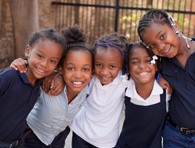
Most Holy Trinity School
Most Holy Trinity Academy is dedicated to transforming children and their community through innovative education at the K- 8 grade levels. Most Holy Trinity is a community-based, co-ed school applying the Nativity Miguel model to help students from low-income communities catch up to grade level, remediate key learning gaps, acquire key social and life skills, and engage in other enrichment opportunities. They fundraise to send their students to high-performing area high schools and provide ongoing support to help them succeed in high school and attain continuing education.
Most Holy Trinity has undergone major transition in the last year. They acquired a new principal, had 100% turnover in teaching staff, and undertook major building renovations to update the school’s physical infrastructure. Their outcomes are astounding. They approached the Brown Sisters to help them breathe new life into several key fundraising strategies. They identified three separate development initiatives or committees that they felt could use the incentive of a challenge grant. The challenge grant has given them powerful opportunities to ask new donors to join the Most Holy Trinity family and invite existing donors to give at increased levels. At our last conversation they had leveraged a challenge grant to the tune of 170% and counting! Even more valuable than the dollars, they’ve engaged key partners, friends, and board members with deeper levels of commitment and buy-in.

New City Fellowship
New City Fellowship Church launched Restore St. Louis several years ago to house its community outreach ministries and invite the Christian community into intentional, relational service. Church volunteers locally and from around the country now participate in the ministries, including home repair for the elderly, tuckpointing (a social enterprise engaging youth), after-school services, and more. Services are targeted to St. Louis City residents, are relationally-based, and encourage residents to be part of the solution.
St. Louis City’s north side has recently seen an influx of immigrants/refugees. Unfortunately, culturally-competent services are limited in this area. The church has provided limited services for several years, but demand now outstrips their ability to respond. The church received a challenge grant from the Brown Sisters Foundation to attract new donors to help them expand and serve 30 immigrant/refugee families annually with family mentoring, community meals, educational meetings, and English Language Learning.
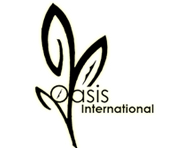
Oasis International
Oasis International works to bring the love of God into the lives of refugees who are relocating to St. Louis and healing from the effects of living in war torn countries. They provide English classes, furniture and clothing giveaway to new arrivals, driving lessons, benevolence support, citizenship classes, and many referrals to help newly arriving families learn to thrive in a new American culture. They also work hard to connect refugee families with supportive Christian communities and families with a goal of changing the statistic that only 10% of refugees are even befriended by an American.
Oasis has been operating at capacity, and growing remarkably, for some time. The Brown Sisters invested in Oasis to engage in a strategic planning and operational development process to help identify its critical outcomes, reorganize its programs and services accordingly, more strategically leverage its human resources, and develop its revamped board of directors.
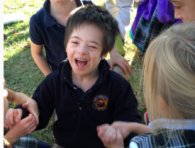
One Classroom
Organization Overview
One Classroom is dedicated to creating inclusive Catholic educational opportunities for children with special needs. The agency partners with St. Louis area parish schools to create awareness of inclusive education, share best practices, support parents, and equip and provide funding to schools to become more inclusive.
Program Overview
The agency is at a critical stage in its life cycle. In order to serve more children, the agency recognized a need to grow its donor base and add paid staff. Brown Sisters Foundation awarded a challenge grant to help the agency attract new donors and ensure its long-term stability.
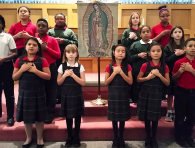
Our Lady of Guadalupe Church and School
Located in north St. Louis County, Our Lady of Guadalupe School is a Catholic elementary school that was founded in 1954. Our Lady of Guadalupe serves approximately 200 students in grades preK-8 from culturally diverse backgrounds with a large Hispanic population. Its mission is to proclaim acceptance and hope for all while providing a strong education. Nearly all students move on to attend a private/parochial high school.
Our Lady of Guadalupe is committed to growing its enrollment, particularly within the local Hispanic community, while also strengthening appreciation and respect of all cultures and languages. School leadership recently attended the University of Notre Dame’s Latino Enrollment Institute which helped them develop a clear plan to drive growth. The school approached Brown Sisters Foundation for assistance in implementing the plan. The Foundation provided a grant to underwrite most of the expenses as well as issue a challenge to attract new and increase gifts to support additional scholarships.
When COVID hit, many of Our Lady of Guadalupe’s families did not have internet access or devices other than cell phones through which to complete schoolwork. The staff of Our Lady of Guadalupe worked tirelessly to raise funds for needed technology, deliver food to families struggling with food insecurity, and manage the trauma and anxiety that families and staff are experiencing as a result of COVID.
In the midst of this challenging time, Our Lady of Guadalupe sought to equip its teachers to best support students. They approached the Brown Sisters Foundation for support to hire a teacher’s assistant to support teachers as they managed remote learning; training for staff on trauma awareness and cultural sensitivity; and funding to access an online curriculum online field trips to ensure that learning continued for virtual learners. Our Lady of Guadalupe also faced other unexpected costs related to the pandemic including safety and cleaning supplies and additional technology needs. The Brown Sisters Foundation issued a challenge grant to attract new and increased donations to support these pandemic-related costs.
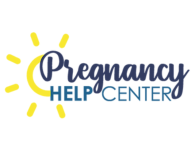
Pregnancy Help Center
Organization
The Pregnancy Help Center provides free pregnancy testing, limited obstetric ultrasounds, sexual health evaluations, options counseling, material item support, and community referrals to pregnant women, all from a gospel-centered approach. Their wrap-around services include weekly prenatal and parenting classes, assistance with rent, utilities, car payments/repairs, and big ticket baby items for clients who qualify financially, and weekly meetings with a Case Manager who can assist with enrollment in programs like Pregnancy Medicaid and WIC. Support and services continue through the child’s first few years of life.
Partnership #1 (2023)
The Pregnancy Help Center is currently operating at max capacity and needs a new, bigger location, specifically in a more accessible location near a bus stop, which will allow them to serve more at-risk and underprivileged clients and launch new programs. The Brown Sisters Foundation provided a challenge grant to support the purchase of a new facility, as well as engage new and existing donors to support this critical time of growth for the organization.

R3 Development
R3 Development exists to improve the lives of East St. Louis residents, particularly youth, through economic, housing, and leadership development opportunities. Staff and volunteers mentor, disciple, train, and employ youth to work alongside volunteers (primarily from area churches) to rehab houses which are then leased/sold at very reasonable prices to local residents. The agency seeks to help youth develop a work history, references, and job skills that improve their relationships with God, self, others, and work, ultimately creating long-term and eternal change. Additional houses are flipped using paid contractors and sold at higher price points throughout the Metro-East to help sustain the ministry.
This young agency recognized that, while it was blessed with a strong volunteer base, it needed to strengthen its donor base in order to improve its long-term sustainability. The agency approached Brown Sisters Foundation and was awarded a challenge grant to launch a new Pathmaker Campaign to attract new individual donors who contribute monthly as well as new partner churches. Funding was also provided to help the agency work with an outside development coach to help ensure the success of these new fundraising efforts.
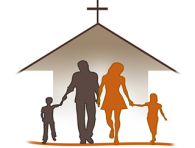
Refuge and Restoration
An outgrowth of Refuge and Restoration Church, the agency exists to support the church’s outreach ministries. Until recently, it provided services such as job training and marriage counseling. It is poised to dramatically grow through the new Springwood Plaza Faith Project.
North St. Louis County has long suffered from a lack of development and deteriorating employment opportunities. Seeing an opportunity to engage the faith community in revitalizing the community, Pastors Ken and Beverly Jenkins embarked on an ambitious quest to purchase and transform a long-vacant property in Dellwood. When complete, the complex will house a job training center, co-working space to incubate new businesses, a quality early childhood education center, banking facility, and dialysis center. Refuge and Restoration Church will also relocate to the plaza. The organization should be self-sufficient within 18 months. The Brown Sisters Foundation became the first local funder of this endeavor by issuing a challenge grant to attract donations from individual, foundation, and business. The goal is to raise $7.5 million to purchase and renovate the property.

Rosati-Kain Academy
Organization
Founded in 1911, Rosati-Kain High School was the first all-girls Catholic high school in the St. Louis region to racially integrate in 1947. Today, it has a racially, ethnically, and economically diverse population. Graduates attend and receive tuition support from some of the most well-respected Catholic universities in the country. In 2022, Rosati-Kain was closed by the Archdiocese of St. Louis as a part of its new, strategic consolidation plan. School officials decided to re-establish themselves as an independent Catholic school, now called Rosati-Kain Academy (RKA), and it continues to be the only all-girls Catholic high school in the city of St. Louis. Rosati-Kain Academy provides a comprehensive college preparatory secondary education program for high-achieving high school girls from all over the greater St. Louis area. Rosati-Kain offers a full academic program, including AP or ACC college credit classes. Rosati-Kain’s theology department focuses on developing each student through catechesis to form a theological basis for moral choices, personal spirituality, and service to others. The schools also offers a well-developed arts program and several athletic programs.
Partnership #1 (2018)
The school approached Brown Sisters Foundation with a plan of developing a Women Giving Society, aimed at increasing gifts from alumnae. Funds raised will go directly to ensure a diverse student body by supporting student scholarships. The Foundation awarded a challenge grant to help the school attract new and increased donations from its alumnae.
Partnership #2 (2023)
With their recent separation from the Archdiocese and re-establishment as Rosati-Kain Academy, The Brown Sisters Foundation issued a challenge grant to support their tuition assistance program, which will help them continue to provide a quality, private school education to economically and demographically diverse young women from all over the St. Louis region. The grant will also be utilized to stimulate new and increased gifts from their alumnae and other donor bases.
Partnership #3 (2024)
Rosati-Kain Academy (RKA) experienced tremendous fundraising growth, as well as increased enrollment after their first year independent from the Archdiocese. In order to empower students with cutting-edge tools and innovative approaches that foster critical thinking, creativity, technical proficiency, and passion for disciplines like coding, robotics, and science, RKA requested funding to bolster their STEM curriculum. Exposure to quality STEM education in high school makes students more likely to pursue post-secondary degrees in STEM with higher earning potential, which is critical for many of the RKA students who become first generation college students in their families. The Brown Sisters Foundation issued a challenge grant to enhance their STEM curriculum, as well as stimulate new and increased gifts from their donor base, such as alumni and other individuals in the community.

Saint Louis Crisis Nursery & South City Church
Organizations
St. Louis Crisis Nursery provides emergency intervention, respite care, and support to families in crisis to help prevent child abuse and neglect. Last year, the agency served nearly 3,000 families, of which 98% did not have a substantiated report of abuse/neglect after receiving services. The agency started the Latino Outreach Program 6 years ago in response to the growing needs of the local Latinx community and to ensure equitable access to services. 577 people were served in the program in 2018.
South City Church, affiliated with the Presbyterian Church, began in 2007 and is located in the Shaw neighborhood in south St. Louis city. The church runs Refugio, a Latinx community ministry, which provides a mid-week Bible study to worship, prayer, and service activities.
Partnership
The two organizations have been collaborating for 5 years to provide holistic services to Latino families in crisis using each agency’s strengths. Participating families receive services to address their crisis situation and hope, growth, and a path toward healing including case management, parenting skills, and therapeutic support from Saint Louis Crisis Nursery, as well as pastoral care, Biblical teaching, and spiritual life consultation from South City Church. While the organizations have anecdotal stories pointing to the success of this partnership, they do not have any formal evidence/data. The Brown Sisters Foundation issued a challenge grant to attract new and increased donations to help develop evaluation tools to better understand the impact of their joint services. They will track increased well-being in 3 spheres, as well as understanding of mental and spiritual health.
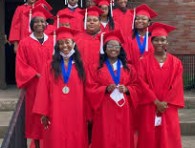
Sister Thea Bowman Catholic School
Organization
Sister Thea Bowman Catholic School prepares kindergarten through grade 8 students in East Saint Louis and surrounding communities to become the next generation of wholesome, responsible, and dedicated leaders of their communities and of our world. As the only remaining Catholic school in East Saint Louis they provide an education that leads to the transformative systemic change needed for success.
Partnership #1 (2015)
Sister Thea Bowman Catholic School had recently begun reconnecting with neighborhood alumni, and discovered a powerful opportunity to engage them in the future of the school. The Brown Sisters issued a 5:1 challenge grant to incentivize new donors to help fund much needed capital improvements around the school.
Partnership #2 (2023)
Sister Thea Bowman’s Kindergarten-3rd grade playground was closed due to old and irreparable equipment. Students were previously using this area during the day and in after school programs, but no longer have a safe place to keep young minds and bodies moving safely, which is crucial for their mental, physical, and academic development. The Brown Sisters Foundation issued a challenge grant to replace the playground with a new, safe and relevant play area, as well as utilize the funding to engage new and existing donors to donate to the school’s overall mission.

Society of St. Vincent de Paul Belleville Council
Organization
The St. Vincent de Paul Society Belleville Council (SVDP) has been serving the poor, hungry and homeless of East St. Louis, IL and surrounding counties since 1917. Through its various programs, SVDP serves more than 7,000 people annually and provides over 100,000 meals per year through its soup kitchen, open 7 days per week year-round. SVDP also offers a Thrift Store for clothing and household items and has an Outreach Ministry Center that provides the poor with assistance with their rent and utilities, offers educational classes, helps clients complete online job applications, apply for state IDs and other documents needed for work or housing.
Partnership #1 (2019)
In response to growing need and limited options for homeless families with children, the Brown Sisters Foundation supported SVDP in building a 5,000 square foot Night Drop-In Center in 2019. The Center is filled to capacity year, annually serving 1,200 people experiencing homelessness. Throughout the pandemic, SVDP programs and services stayed open when many other area social service programs either closed or worked remotely.
Partnership #2 (2021)
In addition to responding to increased housing needs and food insecurity within East St. Louis, SVDP is preparing for changes in their organizational life cycle, volunteer base, and donor habits. The Brown Sisters Foundation issued a challenge grant to strengthen SVDP’s development strategy and community awareness, and to attract new supporters to the ministry.
Partnership #3 (2024)
St. Vincent de Paul currently provides housing support to 100+ people each night in their Emergency Shelter, and are continually at capacity. To provide more upstream solutions to the challenge of homelessness, they will provide new services through its Outreach Support Services ministry that will enable people experiencing homelessness to obtain permanent housing and prevent people from actually becoming homeless and relying on Emergency Shelter services. They will expand services to help people obtain Birth Certificates, State IDs, Social Security Cards, and other required documents for self-sufficiency, as well as build resumes, complete online job applications, and learn best practices for interviews, and meet needs to help people stay in their jobs.

South City Community School
Founded in 2010 and located in a building owned by and adjacent to The Journey Church next to Tower Grove Park, the school provides Christ-centered (nondenominational) pre-K- 8th grade education that inspires children to embrace and flourish in their God-given calling. The school has an intentional mission to draw in children and families of all ethnic heritages and income levels. 203 children are enrolled n the 2019-2020 school year, 37 percent of which receive scholarship assistance. 95 percent of graduates go to a college-prep high school.
Parochial education, especially in an urban setting, is increasingly difficult to operate, especially when the school is not associated with a particular church or denomination. Despite this, the school has continued to grow, both in enrollment and strength. To position the school for long-term success and sustainability, leadership is launching an aggressive 5-year plan to significantly increase its donations, grow the student body, and provide additional scholarship assistance. The Brown Sisters Foundation issued a challenge grant to attract new and increased donations to support this plan.
In the face of the COVID pandemic, SCCS sought to continue to provide a learning community for its students and to continue to grow its long-term sustainability, yet it faced unexpected costs in order to do so safely. Among other safety measures, the school increased cleaning services and supplies, established a symptom monitoring system, improved its information and communication systems, and WIFI capability for remote learning, and ensured well-ventilated areas for students. The Brown Sisters Foundation issued a challenge grant to attract new and increased donations to support these pandemic-related costs.
SCCS is seeking to secure a long-term home for the school. This purchase would allow SCCS to continue growing deep roots in the community and have greater control over the maintenance of its future school building. The Brown Sisters Foundation issued a grant to support a safe building environment for students.

SPROG
SPROG works to invest in both academic and cultural gains for students in the Kirkwood, Webster, Rock Hill, and Des Peres communities. They work with school districts to identify students most in need of their services, and then to measure academic progress via pre- and post- testing. Their summer program is a holistic program which aims to help students make critical academic gains, gain exposure to valuable cultural opportunities, explore their own creative potential through music and drama, have a lot of fun, and become active community citizens. They have an additional component of job training for students that return as counselors.
SPROG has been in existence for quite some time and as the nature of summer programming has evolved, SPROG identified the need to make strategic shifts to its operations. The Brown Sisters funded a new initiative to partner with area schools, in which area schools would identify students most in need of SPROG’s programming, and provide data analysis pre- and post- programming to better measure SPROG’s impact. The Brown Sisters has also invested time and support in strategic planning, a board retreat, and other consultative help to support SPROG through its strategic re-focusing.
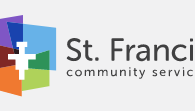
St. Francis Community Services
Founded in 2011 after the uniting of several social service programs, St. Francis Community Services practices the teaching, compassion, and love of Jesus Christ by walking with their vulnerable neighbors to create opportunities, build resiliency, and advocate for justice. The agency serves 3,900 people annually through the provision of legal aid, case management, and immigrant services.
Partnership #1 (2018)
After several years of planning, the agency helped launch the Mental Health Collaborative, a unique initiative to expand the capacity of mental health services to the underserved and foreign-born communities. Led by Casa de Salud, the Collaborative includes six experienced mental health community organizations. Casa de Salud provides the space, appointment tracking, and coordination with physical health services, while partner agencies provide mental health services. The Collaborative approached Brown Sisters Foundation with a request to add an additional therapist (employed by St. Francis Community Services) to meet the growing demand for services. The Foundation awarded a challenge grant to help the collaborative attract new donors and help ensure the sustainability of the project.
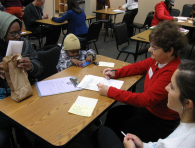
St. Francis Xavier College Church
Founded in 1840 on the corner of SLU’s campus, St. Francis Xavier Church was the first English-speaking parish in St. Louis City. The church has always had very active social ministries, ranging from providing IDs and birth certificates so that people can secure jobs and/or benefits, racial reconciliation, activities to address the environment, and more.
The birth certificate and ID ministry, run almost entirely by volunteers, began in 1993 by helping St. Louis area residents obtain birth certificates and Missouri state ID cards. The ministry is an impressive example of how a church can identify a simple, yet very real gap in the fabric of social services and meet that gap with excellence. For many individuals experiencing homelessness or coming out of prison, securing an ID card or birth certificate is one of the very first barriers they face before being able to take steps towards independence and self-sustainability. Such documents are critical in obtaining employment, education, benefits, and more. The ministry pays for the cost of obtaining these ID’s/birth certificates and helps clients navigate the complicated process.
In the past, the ministry was primarily supported by parishioners, supplemented by occasional grants. In order to ensure the growth and sustainability of the program, College Church needed to secure funding beyond its parishioners. The Brown Sisters Foundation issued a challenge grant to help attract new donors to the program through an organized campaign leveraging volunteers, existing relationships, and visits to other churches.
The ministry approached Brown Sisters Foundation with a request to help modernize its data collection tools from mostly paper to an online database. This would allow the ministry to respond to increased demand for services and accommodate a larger number of guests. It would also increase leadership’s understanding and ability to communicate its impact. Moving to a cloud-based data collection system would also allow the agency to achieve a long-term goal of launching mobile services, thereby better reaching and serving clients. The Foundation awarded a challenge grant to help the agency attract new and existing donors to support these capacity-building and program expansion efforts.
The ministry observed that vulnerable populations have an increased need for state ID and birth certificate services, beyond what the program could provide through its current service model and location. After piloting a mobile outreach approach and incorporating qualitative data collected by Washington University graduate students, St. Francis’ Social Ministry is expanding its Mobile Outreach Project to create a plan for increased, decentralized access to State IDs and birth certificates in the St. Louis region for people experiencing poverty and homelessness by training partner organizations to serve clients from their agency locations, and by accompanying street outreach workers to provide direct services to people who are homeless and explore the potential of a “mobile outreach van” to bring services to people where they are. The Brown Sisters Foundation awarded a challenge grant to hire a part-time staff person to lead these program expansion efforts.
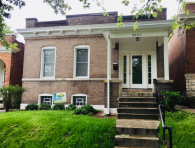
St. Joseph Housing Initiative (SJHI)
Organization
St. Joseph Housing Initiative (SJHI) works to create and sustain vibrant communities through affordable quality housing where low/moderate income families can thrive, prosper, and build wealth, while also stabilizing neighborhoods that are suffering from urban decline. SJHI is an ecumenical Christian organization formed in 2017 through a partnership among local faith leaders in order to address economic and racial inequities in the home ownership rates and the value of homes owned by white homeowners, as compared to homeowners of color.
SJHI purchases long-vacant or dilapidated homes then renovates and sells them at an affordable price to low/moderate- income first-time homebuyers. Currently, most of SJHI’s homes are clustered in the low-income Dutchtown neighborhood and contribute to the stability and cohesion of the community. An active pool of volunteers from area churches, neighborhood associations, and other community groups help clients set up their new home, provide ongoing support and help rehab additional houses.
Partnership #1 (2021)
SJHI recently hired their first Development Director and is preparing to implement their first development plan in order to increase the number of homes and families they can support each year, as well as to expand into new neighborhoods. As part of this effort, the Brown Sisters Foundation issued a challenge grant to revamp their marketing materials and donor database to enable them to effectively reach and steward relationships with new and increased donors.
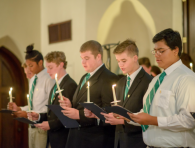
St. Mary’s South Side Catholic High School
Organization
Founded in 1931, St. Mary’s High School is an all-boys, Marianist high school that serves as an anchor in the Dutchtown Neighborhood of South St. Louis City and provides high-quality, high school education to young men from underserved and low-income communities. In 2022, the Archdiocese of St. Louis announced that it would close and remove funding for St. Mary’s Catholic High School at the end of the 2022-2023 school year as a part of their strategic consolidation plan. School officials were passionate about the work and the students being impacted and chose to establish the school independently of the Archdiocese and rename themselves as St. Mary’s South Side Catholic High School. St. Mary’s is addressing the root cause of poverty and increasing equity in education, literacy, and economic justice by providing exceptional education in an under-resourced community. In 2023, they began offering the city’s first school pre-apprenticeship trades program, creating job readiness and a pathway to financial independence.
Partnership #1 (2021)
St. Mary’s School is serving an increasingly geographically and economically diverse student population, with a particular increase in students coming from North County because of the recent closure of Trinity High School. St. Mary’s students have also faced significant financial hardship as a result of the pandemic, with 91% of students qualifying for tuition assistance by the end of the 20/21 school year, reflecting an increase from just 48% at the beginning of the year. In order to make St. Mary’s accessible regardless of a family’s ability to pay, the Brown Sisters Foundation issued a challenge grant to attract new and increased donors to support additional scholarships for low-income students.
Partnership #2 (2023)
With the recent separation from the Archdiocese and the re-establishment of the school as St. Mary’s South Side Catholic High School, they sought funding for their student scholarship assistance program, a program which breaks down the barriers to high quality education, especially for youth living in under-resourced areas. Enrollment increased by 15 percent for the upcoming school year, and 90 percent of their students receive scholarships, showing an increased need for tuition support. The Brown Sisters Foundation issued a challenge grant that would enable them to grow their base of scholarship supporters, increase sustainability, and continue to support students from underserved communities.
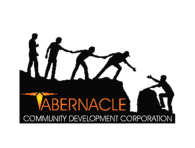
Tabernacle Community Development Corporation
Led by the lead pastor of the Tabernacle Church, the Tabernacle Community Development Corporation (TCDC) was founded in July 2014 for the purpose of community revitalization in the Jeff Vanderlou and The Ville neighborhoods in North St. Louis City.
TCDC runs an affordable rental housing program to renovate homes; provide stable, affordable units; and provide direct case management to residents. Through its renovations, the TCDC has invested 2.1 million dollars in the neighborhood to-date. TCDC also runs a scholarship program that provides scholarships and mentorship for two young people in their first year of college, as well as a program to support 11th & 12th grade students in finding scholarship funding to cover the cost of post-secondary education.
The Tabernacle CDC is renovating a building in North St. Louis City to serve as a service and community hub for the neighborhood. TCDC purchased an old school building in 2018 and is nearing the end of a capital campaign to complete the renovations that will transform it into a one-stop-shop for community services. The space will also host church services, worship, small group ministry, and other community events. The Brown Sisters Foundation provided a challenge grant to attract new and increased donations to meet their renovation needs, and to reduce their reliance on loan financing for the project.
Affordable, quality housing is a catalyst for rebuilding the community by revitalizing physical structures in the community for safe occupancy, stabilizing families by reducing monthly housing expenses, and employing community and local residents for renovation, maintenance, and lawn care services. Tabernacle CDC is creating affordable housing in the 3rd Ward of St. Louis and the Brown Sisters Foundation issued a challenge grant to support costs related to renovations of these affordable housing units.

The Haven of Grace
Organization
The Haven of Grace provides a safe, nurturing home, educational programs, and long-term support for mothers and children to heal from trauma and envision a new life for themselves. The Haven of Grace has three programs: the Maternity Shelter where new mothers can focus on their basic needs and settle in a safe place before and after delivering their baby; the Transitional Apartments where clients can move into secure, furnished apartments, stay for up to 2 years while working toward educational goals, and save for a move back into the community; and the Ten-Year Aftercare Program which provides long-term, family-like support for women working toward self-sufficiency, offering housing start-up funds, life skills workshops, book stipends, scholarships, emergency assistance, continued case management, and services for children.
Partnership #1 (2024)
The Haven of Grace Funds identified that the children in its programs need additional services to better address experiences of trauma, homelessness and poverty, and are enhancing their Children’s Mental Health Care programming to best meet these needs by including: increasing the quality of educational classes, building up their staff’s capacity for trauma-informed care to meet the extensive mental health needs, literacy classes, healthy parent-child attachments, and mentoring. The Brown Sisters Foundation issued a challenge grant to support their efforts to enhance their Children’s Mental Health Care program, and inspire gifts from new and existing donors.

Thrive Pregnancy Resource Center
ThriVe Louis is a Christ-centered organization that empowers young men and women to make life-affirming, esteemable and healthy decisions about spirituality, sexual integrity, unplanned pregnancy and relationships. They offer free medical services to pregnant women throughout St. Louis, including the launch of several innovative mobile units.
Thrive approached the Foundation with two goals – strengthen the health of their donor base and expand their services. They wanted to launch two new mobile medical units to expand services to new markets (one on college campuses – an unprecedented approach, and one in territory that currently lacks access to these important services). They recognized that a major opportunity among their donor base was to ask their donors for multi-year gifts, at increased amounts, and in so doing deepen their connection to the ministry. The Foundation issued a 5:1 challenge grant per year for 3 years (ultimately, a 15:1 match), designed to raise the seed capital to buildout two new units and support operating expenses for 3 years.
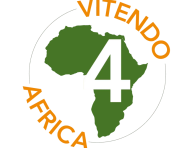
Vitendo4Africa
Vitendo4Africa was an organic idea birthed in 2009 with less than 200 East African immigrants in Florissant, Missouri. V4A has impacted 20,000+ immigrants/refugees representing more than 27 nationalities, with over 87 percent of its clients being immigrants and refugees from Africa. V4A is an organization for immigrants run by immigrants with the philosophy that client engagement is more than the typical client-organization relationship. V4A’s mission is to welcome, connect and empower healthier immigrant individuals and families through the provision of supports and services, and by coordinating resources. V4A provides academic support, job readiness, community services, college readiness, mentorship, and mental health services to refugee and immigrant youth in the St. Louis area.
In the agency’s recently completed strategic plan, the Board set a goal of expanding services (particularly youth programming) and significantly growing the organization’s budget, which will require increased attention to and sophistication in fundraising. Currently, while the agency delivers impactful services, leadership knows they need to connect better with donors. The Board recognizes that they must diversify and increase funding to match the growing need for services. The Brown Sisters Foundation issued a challenge grant to develop a strong fundraising plan and donor messaging to help attract new and increased donations.
In 2021, Vitendo4Africa was approved to offer Youth Opportunity Program tax credits for 2022-2025 from the Missouri Department of Economic Development for refugee and immigrant youth empowerment, specifically to inspire, empower and engage young peoples to participate in community development and to discourage them from engaging in criminal and violent behavior. The Brown Sisters Foundation issued a challenge grant for fundraising training and staffing support, so V4A could increase its fundraising capacity and fully leverage the tax credit opportunity which will support expanded youth development programming.
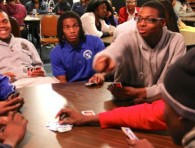
Urban K-Life
Urban K-Life brings lasting hope to urban teens one relationship at a time through outreach, fellowship, mentoring, and discipleship. They are deeply engaged in relationships with urban teens, and maintain a strong adult presence in city schools. They offer weekly club meetings where teens connect with loving adult mentors and engage in conversations about key life issues and God’s love and plan for them as individuals. They offer many other services like enrichment activities, tutoring programs, and most recently a partnership with the PGA REACH Foundation to improve academic performance and introduce urban students the sport of golf.
Urban K-Life has a robust development team, with strong plans for growth in the development arena. They believed hiring a development assistant was key to the implementation of key development initiatives. The Brown Sisters invested in this position – a position that would cost 25% of targeted increase in development efforts, and an increase they believe would be sustainable after the granting year was complete.
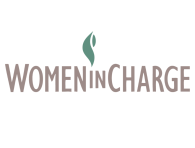
Women in Charge
Organization
Women in Charge helps women in crisis find the skills and strengths they need to take charge of their lives. Women in Charge specializes in serving women who have dropped out of school and cannot succeed in standard literacy or job training programs because of underlying emotional and life challenges. In a safe, supportive, and enriching environment, women achieve the life and learning skills they need to improve their literacy, stabilize their families, and become self-sufficient. Women In Charge provides 1:1 adult education in HiSet (formerly GED) and literacy classes, mentoring and parent education classes, counseling and case management, and life-skills classes. The organization also provides early childhood services on-site for kids ages 6 weeks to five years, while their mothers are participating in the program or looking for employment.
Partnership #1 (2022)
The organization saw an increase of 50% in their teen referrals as a result of disconnection and school drop-outs during the pandemic and is seeking to expand their program for teen mothers. In addition to increasing the number of teens served, Women in Charge seeks to increase the non-academic support for teen participants to increase retention: many teens drop out of the program before completion due to the need to earn an income, but often return several years later to complete their education. The Brown Sisters Foundation issued a challenge grant to attract new and increased donors to support the organization’s growth, and to support the expansion of their teen program.
Interested in applying for a grant? Please check out our funding priorities, how we invest, and our grant process.
If it seems like a good fit, please click here to join our mailing list and receive updates about the Brown Sisters Foundation grant process.
For questions, please contact Chloe Troll at info@brownsisters.org, or by filling out the form below.

